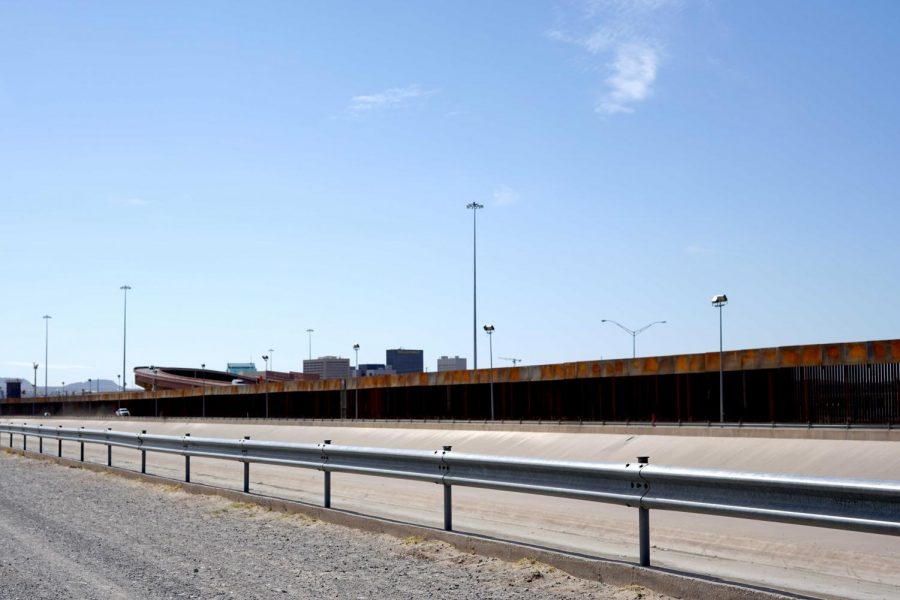The southwest border of the United States has encountered a record increase in the amount of unauthorized entries of migrant families, presenting significant challenges to the border region as various organizations struggle to deal with the influx.
According to the U.S. Department of Homeland Security, the U.S. Border Patrol (USBP) apprehended more than 76,000 migrants during the month of February, making it the highest number of encounters in more than 10 years. Of those, 65 percent were made up of family units and unaccompanied children.
“This increased flow presents currently at our highest levels in over a decade, (and is) both a border security and humanitarian crisis that challenges our resources and personnel,” Customs and Border Patrol Commissioner, Kevin McAleenan said during a press conference.
Brian Hastings, the law enforcement operations director for the USBP, explained that October 2018 marked the first time that the amount of migrant family units exceeded the amount of single adult apprehensions.
“Border Patrol has no reason to expect that this trend will decrease. In fact, we believe it will increase,” Hastings said.
McAleenan said that the El Paso Border Patrol sector has experienced these trends more acutely than any other place along the border, stating that El Paso alone has seen a 434 percent increase in apprehensions this fiscal year with the majority being families and unaccompanied children.
The Annunciation House at El Paso has experienced first-hand the increase in families crossing into the U.S. as their demand for volunteers, shelters and assistance has grown.
“We’ve had to reach out to many church organizations, community organizations in the El Paso (and) Las Cruces areas and, even recently, out to Albuquerque requesting assistance for housing all of these immigrants,” Christopher Davis, a long term volunteer for El Paso’s Annunciation House said.
In previous years, USBP would arrest up to 90 percent of Mexican migrants who could be easily deported back to Mexico. Currently, 70 percent of migrants that are crossing into the U.S. are from Guatemala, El Salvador and Honduras, otherwise known collectively as the Northern Triangle.
Word of mouth and social media has helped spread the fact that adults entering the U.S. with children will not be detained during the immigration proceedings for illegal entry.
Victor Manjarrez, the associate director of the Center for Law and Human Behavior at UTEP, served for more than 20 years in the USBP. He explains the strain that border patrol agents face as they have to pull people from other areas to fill the gaps created as the number of migrants increase.
Throughout the current fiscal year, there have been 70 large groups of more than 100 migrants each which make up a total of more than 12,000 apprehensions. According to Hastings, family units coming from the Northern Triangle comprise 99 percent of all apprehensions.
“We’re devoting a large amount of our daily resources to this,” Hastings said. “The facilities and the manpower cannot support the increase in apprehensions of family units and unaccompanied children.”
USBP stations and facilities were originally built with a different demographic in mind and not for the current increasing trend of family units.
“We’re committed to addressing this humanitarian need but the current situation is unsustainable for Border Patrol operations,” Hastings said.
Because of this, organizations such as the Annunciation House and Casa del Migrante in Cd. Juárez have become crucial resources for migrants.
These organizations are also struggling with the increasing amount of migrants that seek their help. These organizations rely on the help of volunteers who donate essential items such as socks and underwear or help transport migrants to bus stations and airports.
“Facilities housing migrants near El Paso have reached capacity and gone over capacity numerous times,” McAleenan said. “We are taking steps to establish a Centralized Processing Center in the El Paso sector.”
The Centralized Processing Center will attempt to tend the health and guarantee the safety of families and children in its custody while creating an efficient system that will reduce the time that migrants are held.












